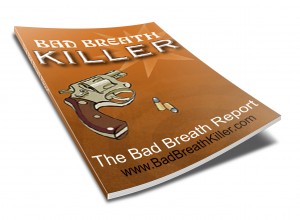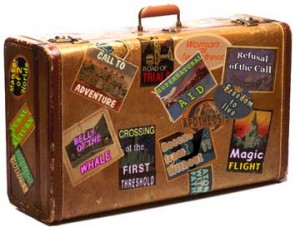 Report Layout
Report Layout
There are a few ways of doing this correctly. You can use the headings IMRAD -introduction, methods, results and discussion or
Use the following headings:
Introduction:
Explain what the report is about, why you decided to write it, how you will gather your information.
Findings:
Using bullet points & statistics, make a list of your findings.
Conclusion:
What can you conclude from what you’ve discovered above.
Recommendations:
What changes / solutions do you suggest. One per conclusion. Be specific.
NOTE: on one occasion students were asked to write a ‘memo’. A memo is an informative document usually used in an office setting. It can come in many different formats so there is no one absolutely correct way of approaching this task. The language is usually formal, clear and direct. Click on this link for more discussion and sample memos: http://owl.english.purdue.edu/owl/resource/590/04/Sample Report
Report on the eating habits of Junior Certificate students.
Introduction:
The purpose of this report is to find out more about the typical eating habits of junior certificate students. Interest in this topic began following a discussion on healthy eating during our home economics class. We compiled a questionnaire which was distributed to all junior certificate students.
Findings:
- 24% of students regularly skip breakfast
- 76% eat unhealthy snacks during morning break (these include chocolate, crisps, sweets, fizzy drinks, sausage rolls, wedges).
- 58% bring a packed lunch, 12% go home, 17% eat in the canteen.
- 13% rarely eat lunch.
- 94% have a healthy hot dinner every day.
Conclusions:
Students have a healthy balanced diet for the most part. Some students eat excessive amounts of junk food during morning break. There are also some concerns about the practice of skipping meals.
Recommendations:
Introduce a special offer in the canteen whereby students can buy a bottle of water, pot of yoghurt and piece of fruit for €1.50 during morning break.
Arrange for a nutritionist to speak to all SPHE classes, focusing on the health benefits of healthy eating and the dangers of skipping meals.
Provide in-service training for teachers on recognising the symptoms of eating disorders.
Report writing – common mistakes
(A) Using casual, conversational language and abbreviations.
Examples =
-
It’s obvious that SHOULD BE It is obvious that
-
We’ve discovered SHOULD BE We have discovered
-
…we’d look at SHOULD BE …we would examine
-
We realised how bad students were eating SHOULD BE We realised how unhealthily students were eating.
-
rubbish food SHOULD BE unhealthy or junk food
-
Parents must give their kids SHOULD BE give their children
A report is an official document so always choose the most formal phrase you can.
(B) Offering personal opinions.
Examples =
- Few leaving certs eat a breakfast which is surprising, you’d expect them to try and get a good start to the day considering they are facing such a big exam year.
SHOULD BE
- 77% OF leaving certificate students don’t eat breakfast.
- Lots of students eat chocolate, crisps and sweets during the day. This is disgraceful.
SHOULD BE
- 76% eat unhealthy snacks during morning break (these include chocolate, crisps, sweets, fizzy drinks, sausage rolls, wedges)
A report presents the facts in clear simple direct language.
It is a scientific fact that skipping meals is unhealthy but there is no scientific proof that it is ‘disgraceful’. Get to the point and avoid giving your opinion.
(C) Taking too narrow a focus.
- Instead of talking about all meals you only referred to lunch
- Instead of asking about packed lunches you only looked at what was sold in the canteen (in this case it should be re-named “Report on the school canteen”)
- You went totally off the point and assessed levels of obesity.
(D) Your method of finding out information was flawed – you used observation instead of a survey or questionnaire.
Why is this a problem?
Think of the example above – if you simply stand in the canteen and watch people eating you won’t be including everyone – the people who go home for lunch, those who go to town and those who bring a packed lunch – so your conclusions will be flawed. Also, you cannot get any exact statistics simply by watching. The whole point of a report is to find out more than you know or suspect already so you need exact figures.
(E) You were unrealistic which made the report seem fake!
- “I interviewed all the students in our school” – this would be difficult, time consuming and unnecessary. A survey just needs to be given to a representative sample so that all effected groups are included. In this case if you want info. from the entire school give the survey to one class from each year group.
- Some of your recommendations were unrealistic or impossible to enforce, for example “A new system will be introduced in the school canteen whereby students must buy at least one piece of fruit in order to purchase any other food” or “Warn parents that they must make their children eat breakfast”
- Some ‘recommendations’ were vague or obvious, for example “students should have at least one piece of fruit a day”. This is simply stating a fact – it is not a recommendation of how to make it happen.
Spot the mistake(s) – here are sentences from reports written by my students:
Offer rewards if students can stay within their weekly amount of bad eating habits.
We decided to do more about the problem of eating.
Most of the students in fat don’t eat there (!) lunch sitting down.
The purpose of this report is to outline young people’s awareness of bad eating.
We went around the 2nd, 3rd and 5th yr classes and asked them questions.
The eating habits of students in our school is outrageous.
Now realistically speaking, how long do you think he will live, eating this way everyday. Not very long the rate he is going.
A meeting by the student council has brought the attention to the students that…
Chocolate is the worst. Most students eats it, not many eats crisps.
First years are the most who go to the chipper for lunch.
PRACTICE MAKES PERFECT – try writing the following report
“As a member of your student council you have been asked to prepare a report on the changes students would like to see made in your school. The report will be presented to the Principal and the Board of Management”.
 What do I need to think about before I start writing?
What do I need to think about before I start writing?




